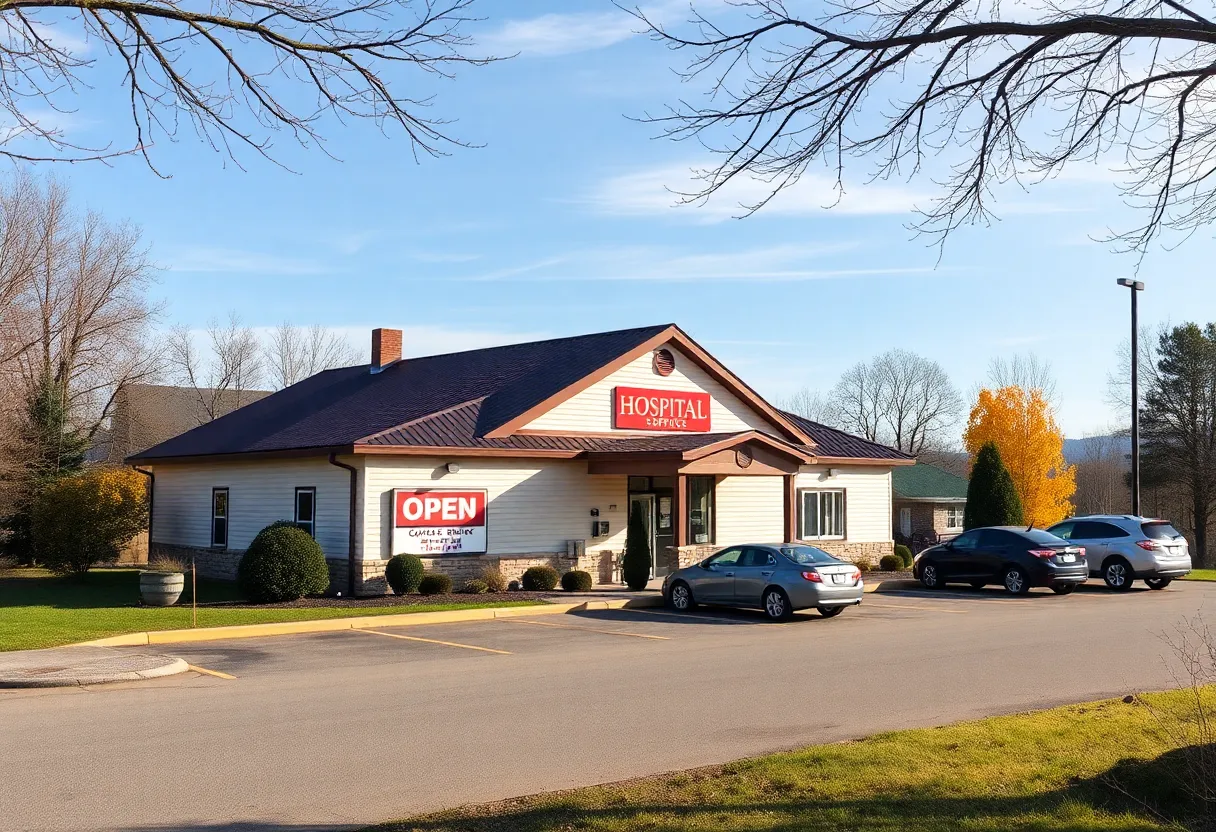News Summary
A recent report reveals that Massachusetts’ rural hospitals are among the 300 nationwide at immediate risk of closure due to potential cuts in Medicaid funding. Advocates express concerns over healthcare access in vulnerable communities, as nearly one-third of rural hospitals nationwide are financially unstable. The closure of key facilities such as Nashoba Valley Medical Center and Carney Hospital has heightened pressure on remaining hospitals, prompting calls for policy interventions to ensure health services in these regions.
Boston, Massachusetts — Massachusetts rural hospitals are among 300 across the nation currently identified as at “immediate risk of closure,” according to a recent report from the Center for Healthcare Quality and Payment Reform. The study emphasizes the significant threat posed to healthcare accessibility in vulnerable communities due to proposed cuts in Medicaid funding.
Approximately 66 million Americans reside in rural areas, making up over 8.9% of Massachusetts’ population. Within the state, there are six operational rural hospitals, with three of them under threat from potential Medicaid cuts. Nationally, around 700 rural hospitals, representing one-third of such facilities, are considered financially unstable. The perilous state of rural healthcare has prompted alarm among advocates for better healthcare access.
The report highlights that since the start of 2023, 38 hospitals have either reduced or eliminated inpatient services to qualify for federal grants specifically available for Rural Emergency Hospitals (REHs). One significant case was the closure of Nashoba Valley Medical Center in Ayer, which occurred due to the transition of Steward Health Care. This closure has subsequently increased patient demand on nearby institutions such as Emerson Hospital in Concord and UMass-Memorial in Leominster. Following this, Carney Hospital in Dorchester also shut its doors in 2023 due to changes within stewardship.
Between 2005 and now, nearly 200 rural hospitals have closed nationwide. These closures detrimentally impact access to essential emergency and inpatient care for millions of citizens residing in these regions. Rural hospitals often operate on extremely narrow profit margins, making Medicaid funding critical to their financial sustainability. The hospitals facing the greatest risk are located in isolated areas, resulting in potential long-distance travel for residents in need of medical attention.
These rural facilities frequently serve as the sole providers of essential services, including vital primary care and diagnostic lab tests. The anticipated closure of these hospitals could lead to significant economic consequences that extend beyond healthcare. Experts assert that the disruption of medical services can threaten food supply chains and energy production in rural regions due to workforce impacts, highlighting the interconnected nature of rural economies.
As hospital closures mount, the remaining facilities—already strained by excessive patient demands—are anticipated to face increased pressure. The catastrophic financial landscape has led to the bankruptcy of Steward Health Care, which is scheduled to close Carney Hospital and Nashoba Valley Medical Center by August 31, 2024. Such closures fuel concerns among healthcare professionals and state lawmakers regarding the potential for disrupted continuity of patient care and the overall health market stability in Massachusetts.
Both U.S. Senator Elizabeth Warren and U.S. Representative Jake Auchincloss have expressed concerns regarding the accountability of the Rural Healthcare Group, which took over stewardship of these hospitals from Steward. Their calls for greater oversight highlight ongoing anxieties about the direction of healthcare services in rural areas, an issue that could reverberate through healthcare delivery systems across the state and nation.
The critical state of rural hospitals underscores the urgent call for policy interventions to prevent the deterioration of healthcare access in these communities. Stakeholders in the healthcare sector are advocating for renewed discussions regarding Medicaid funding and alternatives to ensure the survival of rural hospitals and the vital services they provide.
Deeper Dive: News & Info About This Topic
- Patch: MA Hospitals at Immediate Risk of Closure
- Wikipedia: Rural Healthcare in the United States
- CBS News: Carney Hospital and Nashoba Valley Closing
- Google Search: US Rural Hospitals
- MassLive: Questions for New Owner of Steward’s Physician Network
- Encyclopedia Britannica: Healthcare
- The Gardner News: Heywood Hospital Bankruptcy
- Google Scholar: Rural Healthcare Funding
- Politico: Rural Hospitals and Insurers Clash
- Google News: Rural Hospital Closures

Author: STAFF HERE BOSTON WRITER
The BOSTON STAFF WRITER represents the experienced team at HEREBoston.com, your go-to source for actionable local news and information in Boston, Suffolk County, and beyond. Specializing in "news you can use," we cover essential topics like product reviews for personal and business needs, local business directories, politics, real estate trends, neighborhood insights, and state news affecting the area—with deep expertise drawn from years of dedicated reporting and strong community input, including local press releases and business updates. We deliver top reporting on high-value events such as Boston Marathon, Head of the Charles Regatta, and Boston Harborfest. Our coverage extends to key organizations like the Greater Boston Chamber of Commerce and Associated Industries of Massachusetts, plus leading businesses in finance, biotech, and insurance that power the local economy such as Fidelity Investments, Biogen, and Liberty Mutual Insurance. As part of the broader HERE network, we provide comprehensive, credible insights into Massachusetts's dynamic landscape.



